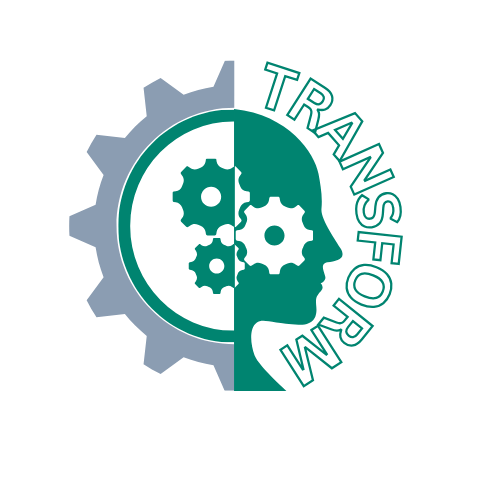Lista de Projetos
Esta é a lista de projetos disponíveis no sistema. Para saber mais detalhes sobre um projeto clique no seu nome ou imagem. Também pode procurar por um determinado projeto na caixa de pesquisa em baixo.
Página 3
O projeto Xpanding Innovative Alliance (XiA) dedica-se ao avanço da interoperabilidade no setor da saúde, com especial foco na antecipação da regulação do Espaço Europeu de Dados de Saúde (EHDS). Através de uma iniciativa educativa abrangente, o XiA visa colmatar as lacunas de competências em normas avançadas de interoperabilidade digital em saúde entre prestadores de cuidados de saúde, fornecedores de soluções digitais de saúde e indivíduos. Através do desenvolvimento de materiais educativos e cursos de alta qualidade, o XiA procura dotar as partes interessadas das competências necessárias para adotar os padrões associados ao EHDS e fomentar uma cultura de interoperabilidade. O projeto adota uma abordagem multidisciplinar, oferecendo conteúdos educativos online e experiências de aprendizagem imersivas, adaptados às necessidades de profissionais e organizações de saúde. Esta iniciativa não apenas visa educar uma ampla força de trabalho nas normas avançadas de interoperabilidade, mas também estabelecer parcerias com outras instituições para amplificar o seu impacto. Os objetivos principais do XiA incluem a criação de percursos de aprendizagem personalizados, a acreditação das iniciativas educativas e a promoção da integração de competências relacionadas com a transformação digital, interoperabilidade e cibersegurança. Através de mecanismos de micro-certificação e parcerias com redes académicas, o XiA pretende garantir a sustentabilidade e escalabilidade dos seus programas educativos. Fomentando a colaboração transfronteiriça e envolvendo entidades externas, o projeto procura capacitar os prestadores de cuidados de saúde, aumentar a competitividade das empresas de saúde digital e fortalecer as competências dos profissionais de saúde da União Europeia. Adotando uma abordagem aberta às normas de interoperabilidade e à educação, o XiA ambiciona sustentar os seus esforços e gerar um impacto duradouro no campo da saúde digital.
Informação do Projeto
2025-01-01
2028-12-31
Parceiros do Projeto
- BRU-Iscte - Líder
- CIS-Iscte
- ULSSA - (Portugal)
- UNIVERSITY OSLO - (Noruega)
- THD - (Alemanha)
- LAUREA - (Finlândia)
- AUTH - (Grécia)
- DHS - (Eslováquia)
- NTTDES - (Espanha)
- FGM - (Itália)
- Fyrstain - (França)
- UMinho - (Portugal)
- ECHALLIANCE COMPANY LIMITED BY GUARANTEE - (Irlanda)
- TALTECH - (Estónia)
- EUROPEAN HEALTH MANAGEMENT ASSOCIATION - (Bélgica)
- Clinipower - (Finlândia)
- UCRETE - (Grécia)
- CSCT - (Portugal)
Este projeto procura desenvolver um ecossistema digital que permita interação de vários stakeholders (empresas, candidatos, recrutadores). Trata-se de uma plataforma que permite assegurar, de forma gamificada, várias respostas às empresas. Entre as várias ofertas destacam-se o assessment e a identificação do perfil dos candidatos e de trabalhadores nas empresas. A mesma plataforma permite auxiliar processos de diagnóstico e mudança organizacional, recorrendo a algoritmos de decisão e gestão de big data com recurso a processos de machine learning que permitam reduzir o risco da decisão
Informação do Projeto
2024-10-01
2027-09-30
Parceiros do Projeto
- BRU-Iscte (OB&HR) - Líder
- ISTAR-Iscte
- BRU-Iscte (Data Analytics)
Teacher burnout is a significant psychosocial, educational, organizational & economic challenge worldwide that has been aggravated by the COVID-19 pandemic. Impacts have been reported on teachers’ occupational health/wellbeing, job satisfaction, and performance, as well as on the quality of the learning environments. Hence, contributions to prevent teacher burnout have been receiving more attention by policy makers globally, as investing in occupational health can have a return on investment of 5 times the investment, and teaching is becoming unattractive with many OECD countries facing a shortage of new teachers and high turnover rates. Yet, an emphasis has been placed on some individual-level variables (as optimism), leaving the impact of other individual (e.g., self-care) & contextual variables (as job resources, e.g., leadership practices) overlooked. This project intends to investigate teachers’ needs regarding personal & job resources and whether teachers’ and the leadership team’s perceptions of personal/job resources needs are concordant. It also investigates how personal and/or job resources relate with teachers’ occupational health/wellbeing. Lastly, it proposes to investigate how a digital platform based on a Social-Emotional Learning (SEL) approach for teachers and their leaders, can foster teacher wellbeing and performance. Study 1 employs a sequential explanatory design to assess the perceptions of teachers and leaders regarding personal and job resources. Participants will complete a survey, followed by focus group discussions with teachers and individual interviews with leaders to enrich the quantitative data. Study 2 adopts a quantitative design with teachers to examine the relationship between personal and job resources and teachers' occupational health and wellbeing. Study 3 involves developing and testing the #SELhub digital platform to promote a positive school culture and enhance teacher wellbeing and performance, through an experim...
O objetivo deste projeto é desenvolver soluções duradouras no domínio da cooperação científica, de implementação e de processos de ensino, no âmbito de parcerias académicas internacionais. Os resultados do projeto deverão constituir uma base para o desenvolvimento de uma cooperação duradoura entre entidades que formam uma parceria para produzir resultados significativos nas áreas da investigação, mobilidade e ensino.
Informação do Projeto
2024-09-01
2026-08-31
Parceiros do Projeto
- BRU-Iscte (Gestão)
- Poznań University of Economics and Business - Líder (Polónia)
- University of Economics in Bratislava - (Eslováquia)
- ESIC University - (Espanha)
- Pforzheim University - (Alemanha)
The project proposal focuses on the future development of the human workforce, with the aim of exploring critical aspects related to its future development.
The technological advances have significantly reshaped industries and lead to the emergence of novel job roles and unimagined employment opportunities that were just until recently unimaginable. The anticipated changes in the labour force will therefore require a corresponding change in the skills, competencies, and capacities of people actively participating in the labour market. In addition, it is critical to address the compelling task of reshaping workplace dynamics and prioritizing workforce well-being, as this aspect becomes increasingly important, especially in the face of labour shortages. By taking a comprehensive view of these interrelated aspects, it becomes imperative to address all of the above elements in order to maintain global competitiveness of European countries in an ever-evolving world and contribute to the necessary transformation of the labour market. The project will engage stakeholders in meaningful discussions about future workforce development, the project enables their participation in the policy-making process, which allows for an exchange of views and the co-creation of Europe's future through their valuable contributions. The project will also strengthen participants' awareness of their rights and knowledge of EU policies by examining and sharing lessons learned and best practices related to labour market challenges.
In sum, this project seeks to contribute to empower individuals with relevant skills and knowledge, and foster an environment that encourages sustainable economic growth, full and productive employment, and decent work future for all.
Informação do Projeto
2024-09-01
2026-08-31
Parceiros do Projeto
- BRU-Iscte (OB&HR)
- DINAMIA'CET-Iscte
- UCLL - Líder (Bélgica)
- FAKULTETA ZA ORGANIZACIJSKE STUDIJEV NOVEM MESTU (Slovenia) - (Eslovénia)
- FFI - (Polónia)
- IH - (Grécia)
- IRES FVG - (Itália)
- CRN - (Alemanha)
- Well-being Lab - (Suécia)
- NCPE - (Malta)
Página 3

 English
English




